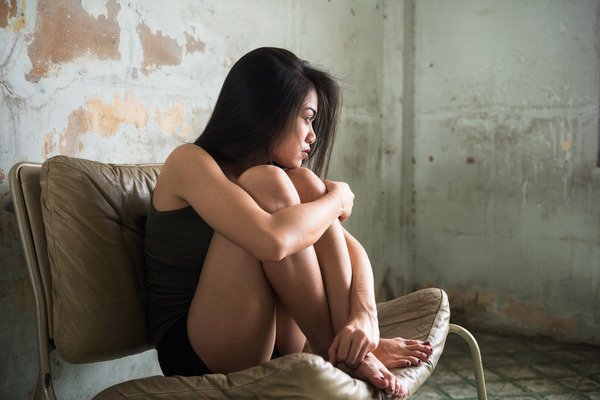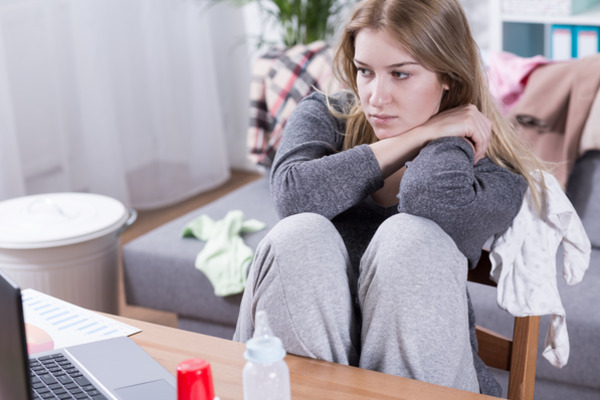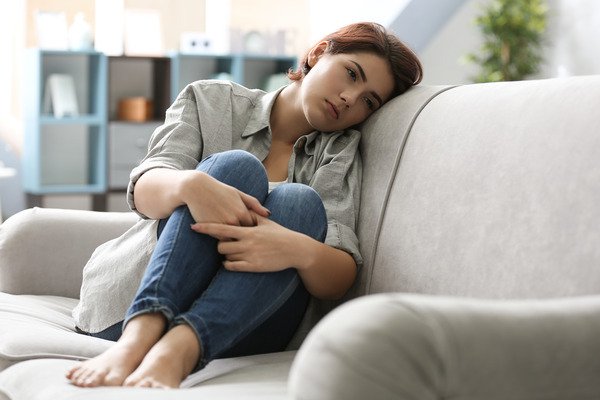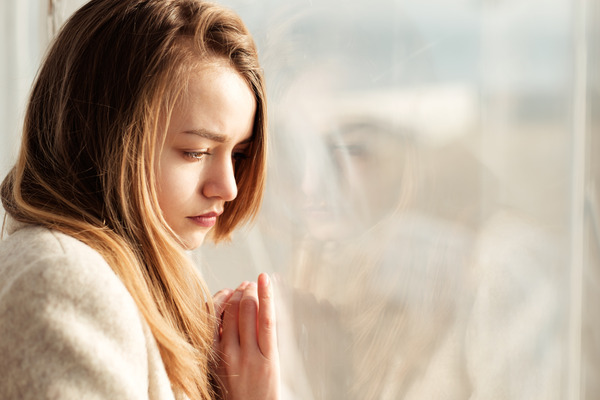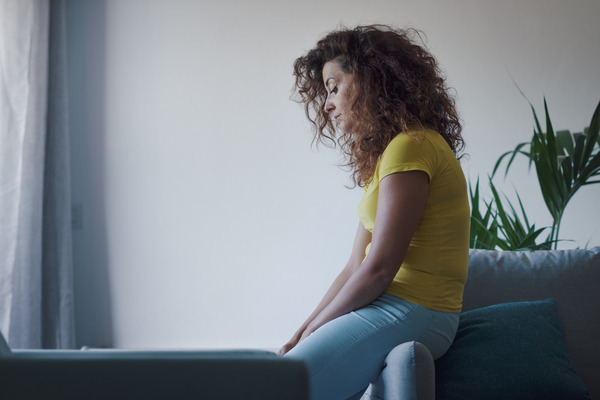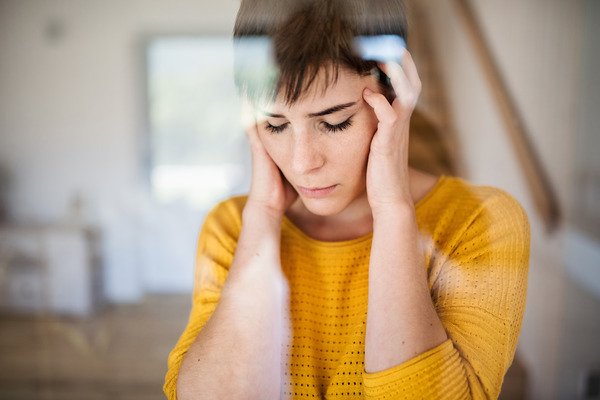What is psychotic depression? Can you suffer from psychosis and depression? Discover the symptoms, causes and treatment for this type of depression.

In some cases, people who have severe depression may experience, in addition to all the symptoms associated with this disorder, other symptoms related to psychosis. The psychotic depression It can affect those who suffer from it because it involves hallucinations, that is, seeing things that do not really exist. As well as delusions, which is equivalent to experiencing false ideas about reality. Why it happens?
What is psychotic depression?
The psychotic depression also known as major depressive disorder with psychotic features, is a very serious condition that requires a visit to a doctor or mental health professional.
The depressive psychosis It usually occurs when a person experiences acute depression, such as major depressive disorder. By having a psychotic condition along with depression, people are not only affected in their mood and behavior, but they may also experience symptoms typical of psychosis, such as delusions and hallucinations.
In fact, research estimates that 20 percent of people who suffer from major depression also have psychosis symptoms to say they suffer from psychotic depression.
Types of depressive psychosis
When suffering from a psychotic depression and its symptoms, people can suffer from two different types of major depressive disorder with psychotic features. Although delusions and hallucinations are present in both psychotic episodes or psychotic breaks, the person may experience these symptoms in a mood-congruent manner or in a mood-incongruent manner.
- Congruent psychotic depression: It implies that the content of hallucinations and delusions is consistent with the feelings inherent to living with depression. That is, people who suffer from these psychotic symptoms Along with depression, they may have feelings of personal inadequacy, guilt or worthlessness in addition to experiencing hallucinations or delusions that are related to them.
- Incongruent psychotic depression: It implies that the content of hallucinations and delusions is not related to the symptoms of depression. In fact, they often experience psychotic breaks that are not related to your mood.
When a person experiences a severe depression and its symptoms, whether combined with psychotic episodes or not, you should urgently seek therapy. Treatment is essential so that people with psychotic depression do not harm themselves or others.
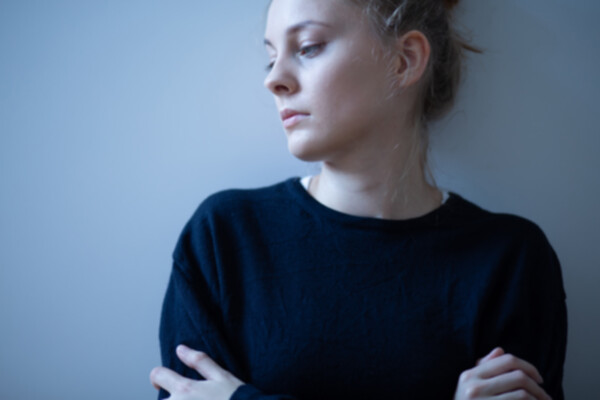
How do I know if I have psychotic depression? Symptoms
The main characteristic of the psychotic depression It is the combination of the symptoms of depression with those of a psychotic attack. Therefore, this type of depression may include the following symptoms.
- Sadness and lack of spirit: One of the most common symptoms of depression is precisely the lack of courage to face everyday life. In many cases, people feel without the strength to even get out of bed.
- Decreased interest or pleasure in activities previously enjoyed: Both the psychotic depression Like other types of depression, they end up making people stop enjoying other activities that they did before.
- Fatigue or lack of energy: Depression, whether along with psychotic episodes or not, it usually causes a loss of energy in those who suffer from it.
- Feelings of guilt or guilt: These types of feelings are usually very disabling when it comes to a aggressive depression since people cannot stop perceiving themselves as ‘useless’.
- Inability to concentrate: The psychotic depression, as well as the others, creates many difficulties for the person to concentrate on a task. This makes them feel worse about themselves, due to the frustration it can cause.
- Significant changes in weight and appetite: Living with depression It also affects the appetite of the person who suffers from it.
- Difficulty to sleep: Insomnia is also one of the common symptoms of depression.
- Thoughts of death or suicide: One of the symptoms of a acute depression They are thoughts towards suicide or death. Faced with these suicidal ideas, it is important to go to the doctor or professional psychologist as soon as possible.
- Delusions: confused thoughts and decreased awareness of surroundings.
- Hallucinations: a false perception of the objects or events around us.
Normally, people who suffer from a psychotic depression and its symptoms They often experience hallucinations or delusions related to the feelings of hopelessness and failure typical of this disorder. If you identify with these types of symptoms, it is important that you consult with a professional psychologist.
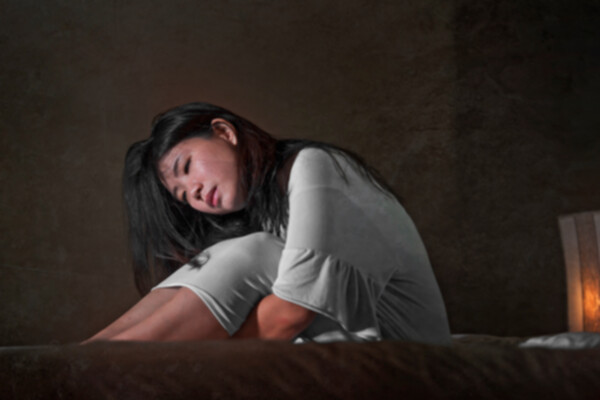
What causes psychotic depression?
Currently, the exact cause that could cause psychotic depression is still unknown. However, people who have family members with mental disorders are often more likely to develop a depressive psychosis Studies also suggest that psychotic depression could also be due to a combination of genes and stress.
Treatment of psychotic depression
People with a psychotic depression They can recover if they receive the most appropriate treatment to address this type of depression. Only through consultation with a mental health professional and persistence in treatment are people able to end this depressive psychosis.


